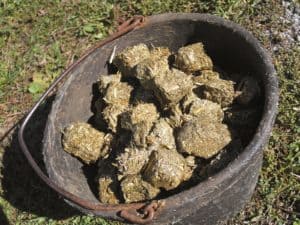
Changing Hay Sources for Horses
Hay’s energy and nutrient content can vary drastically depending on a number of factors, so change forage sources over a two to three week period to help prevent gastrointestinal upset.

Hay’s energy and nutrient content can vary drastically depending on a number of factors, so change forage sources over a two to three week period to help prevent gastrointestinal upset.

Taking preventative measures though diet and exercise are the best defenses against EMS development.

Hay replacers can be extremely useful, but they come with some guidelines to keep horses happy and healthy.

Horses need a balance of both omega-3 and -6 fatty acids for optimal health and performance.

Omega-3 and -6 fatty acids must be obtained in sufficient amounts from the diet.
Stay on top of the most recent Horse Health news with
© 2022 Copyright Statement dolor sit amet, consetetur sadipscing User Terms, sed diam nonumy eirmod tempor invidunt ut labore et dolore magna aliquyam erat, sed diam voluptua. At vero eos et accusam et justo duo dolores et ea rebum. Stet clita kasd gubergren, no sea takimata sanctus est Lorem ipsum dolor sit amet.